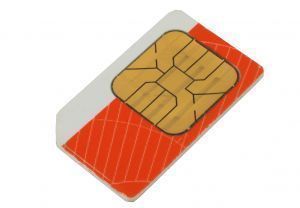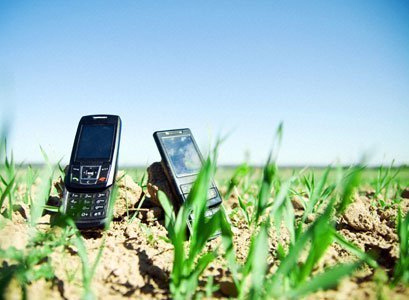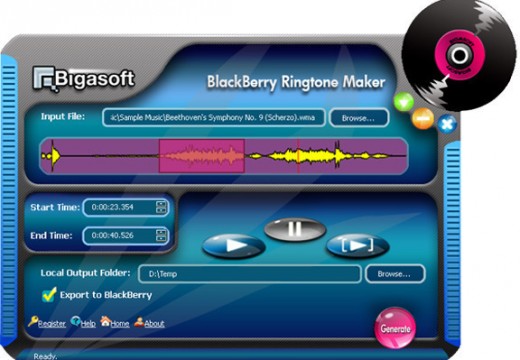As more and more people switch to cell phones for communication, many people are opting to use prepaid phone cards rather than signing up for a contract with a service provider. Prepaid phone cards allow users to purchase temporary plans ahead of time and use their minutes from wherever they are without having to worry about overdraft charges and hidden fees. Aside from cell phones, prepaid phone cards also work with pay phones and allow those users to access minutes from their phone card rather than paying a fee on the spot and then having to insert extra money to continue their conversation. This article will help to address how prepaid phone cards are distributed as well as how they work.
Service Carrier
A service carrier is a company that produces prepaid phone cards. The service carrier owns the broadcasting equipment that manages the customer's phone calls and is responsible for creating the system that their prepaid phone card uses to connect calls. The service carrier is also responsible for making some of the rules for the prepaid phone card and providing customer support.
Reseller
A reseller is a company that buys minutes from the service carrier and distributes those minutes to prepaid phone card issuers. The reseller is mostly a middleman between the service carrier and the issuer. The reseller is responsible, however, for making any additional rules to how the phone card is used. The reseller cannot remove the rules that the service carrier has already enacted but it can add extra features as long as those features do not conflict with the original rules.
Issuer
An issuer is a company that purchases minutes from a reseller and then loads those minutes onto phone cards. The issuer is also the company that decides the rates for each phone card and supplies the access numbers for customers to use their prepaid phone cards. The issuer may purchase the actual cards from the reseller or from another source.
Distributor
A distributor is a company that purchases prepaid phone cards from the issuer. The distributor buys cards in large numbers and then sells them to retail stores in smaller quantities. While the distributor does not make any rules about the actual phone cards, it does play a big role in where the cards are available and how much they cost considering the retail outlet must increase their price to make a profit.
Retailer
A retailer is the store that sells prepaid phone cards directly to the customer. Retailers generally sell other products as well and do not have much control over the cards except for the final price. As the price for phone cards are marked up rather extensively by the time it gets to the customer, many retailers offer store discounts for certain brands of prepaid phone cards and provide the customer with much more support than any of the other handlers.
Rates
When a prepaid phone card finally becomes available to the general public, the customer must review a rates chart for each phone card in order to compare prices. Each prepaid phone card has its own rate chart that shows the customer how much the card costs, how many minutes are available on that card, and a varying price-per-minute depending on where the card is used and whether the customer is making a local or long distance phone call.
Duration
Another important component that a customer needs to pay attention when purchasing a prepaid phone card is the duration of the card. Each prepaid phone card has an expiration date printed on the front that shows how long the customer can use the card before it becomes useless. While prepaid phone cards typically last between 60-90 days, the customer will lose his/her minutes if they are not used within that time period.
Access
In order to use a prepaid phone card, the customer must call an "access number" each time he/she wishes to make a phone call. This access number is important because it allows whatever phone the customer is using to access their prepaid phone card. A local access number will provide the customer with better rates while a toll-free access number will provide better reliability.
Security and Management
Once the customer dials an access number in order to connect to their prepaid phone card service, he/she will be required to enter a PIN number. This PIN number not only allows the customer to access their prepaid phone card but also serves as a management system that keeps track of the customer's phone record as well as how much money to deduct from the customer's account.



Michelle
If someone has a phone, but no plan, can they use prepaid calling cards? How do they work?
Charlene
The above description of a customer’s use of prepaid cell is overly complicated. I’ve used Trakfone and Straight Talk, and neither required me to dial an access number to make a call. Once you’ve purchased your prepaid cell card, you simply scratch off the silver substance on the back of the card to reveal the numbers you use to load your minutes, then load your minutes following the instructions on your phone, and use your phone the same as any other. I made phone calls with both types the same way I would dial a number from home or with any other cell phone carrier–turn it on, and dial the number you’re calling. The phone automatically alerts you when you’re nearing the end of your service time or the number of minutes you’ve purchased. It’s really quite simple and straightforward…probably more so than your monthly cell phone services that bill you.
A. Person
Charlene, that’s because the article is talking about prepaid phone cards, not prepaid cell phones. They are different products with different uses.